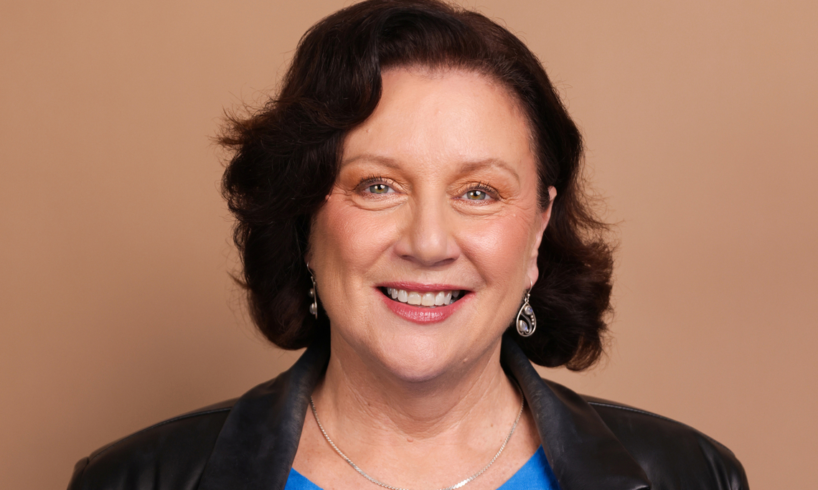
SYDNEY – During her two decades in jail for killing her four babies, Ms Kathleen Folbigg was known as Australia’s worst female serial killer and was described in the media as the country’s “most hated woman” and “lord of death”.
Despite insisting that she was innocent, Ms Folbigg was convicted by a jury in 2003 of the manslaughter of her first child, aged 19 days, and the murders of her other three children aged between eight months and 18 months over a 10-year period from 1989 to 1999.
Prosecutors said Ms Folbigg had smothered her children despite a lack of physical evidence but suspicions of her guilt were fuelled by her cool demeanour and the emergence of a diary in which she appeared to blame herself for the deaths.
But Ms Folbigg was innocent.
She was
released in 2023 after being pardoned
following a judicial inquiry which heard new scientific evidence that the deaths were caused by a rare mutation in a gene that is essential to keep the heart beating.
The inquiry heard that the criminal court allowed incorrect evidence that there had never been three or more cases of unexplained baby deaths in a single family.
Experts also said the diary entries did not indicate guilt but showed a mother torn by grief and depression.
Ms Folbigg has now begun to speak about her ordeal after the release of a book co-written with an old friend, Ms Tracy Chapman, who fought for her freedom.
Talking to ABC’s Conversations programme on Sept 4, Ms Folbigg, 58, said the revelation that a genetic mutation led to her children’s deaths had helped to win her freedom but also brought a new mix of pain and guilt.
“It was a great relief off my shoulders. It was double-edged, though,” she said.
“Because I was in prison, accused of murdering my children. I didn’t physically do it but carried something (a genetic mutation) that did.”
Ms Folbigg’s ordeal has led to calls to speed up the appeals process and to create a criminal case review commission – a standing body that would be able to investigate claims of wrongful conviction. Similar bodies exist in countries such as Britain and New Zealand.
An initial petition for a judicial inquiry into Ms Folbigg’s case was lodged in 2015 following the emergence of new scientific findings, but she spent another eight years in jail before being released.
The case has also raised questions about the ways in which the public and the media can be quick to point the finger of guilt, particularly at women accused of murder.
Ms Folbigg’s case echoed that of Ms Lindy Chamberlain, who was convicted of killing her baby in the Northern Territory in 1980 based on forensic evidence that was later debunked.
Ms Chamberlain, whose case was dramatised in the film A Cry In The Dark starring Meryl Streep, spent more than three years in prison. An inquest eventually found that a dingo had killed the baby, as Ms Chamberlain had always claimed.
“(Ms Folbigg) didn’t behave as people thought she should. She wasn’t emotional enough, not distressed, not crying,” noted Dr Xanthe Mallett, a criminologist and associate professor at the Queensland Centre for Domestic and Family Violence Research at Central Queensland University.
“She was Australia’s most hated woman – people believed she had murdered four of her own children. The public very much believed she was still guilty, and some people still do.”
Both Ms Folbigg and Ms Chamberlain were similarly perceived as cold and emotionless in the wake of their children’s deaths – which fuelled police and public suspicions of the women and may have swayed the juries towards wrongful findings of guilt.
“If they had been the teary mother that the police would have expected, they may not have been judged so harshly and the jury might have responded differently,” Dr Mallett told The Straits Times.
Despite being the victim of one of Australia’s worst miscarriages of justice, it was revealed in August 2025 that Ms Folbigg was awarded just
A$2 million (S$1.7 million) in compensation
for her two decades of wrongful imprisonment. Ms Chamberlain received A$1.3 million in compensation in 1992.
Ms Folbigg’s lawyer, Ms Rhanee Rego, said the amount her client received was “profoundly unfair and unjust”.
“The system has failed Kathleen Folbigg once again,” she said.
New South Wales Attorney-General Michael Daley said the amount was based on a “thorough” consideration of the case but, at Ms Folbigg’s request, the government would not discuss the decision further.
Dr Mallett said the prejudices and assumptions directed at Ms Folbigg and Ms Chamberlain were not a specifically Australian phenomenon but reflected a universal tendency to “judge other people based on how they look and speak”.
She said that the legal system in Australia needs to be “agile” enough to respond quickly to wrongful convictions, rather than rely on appeals processes and judicial reviews that can take years and decades.
The case has added to calls in Australia for a criminal case review commission (CCRC), including from former High Court justice Michael Kirby.
Dr Robert Moles from the College of Business, Government and Law at Flinders University told ST that a national CCRC – with the ability to obtain independent expert forensic advice – would have helped to identify the defects in the Folbigg conviction “much earlier”.
He said the two judicial inquiries into the case cost more than A$2.5 million each and were “a significant waste of time and money because they involved an adversarial rather than an inquisitorial fact-finding process”.
“A proper analysis of the systemic defects which occurred in the conduct of the Folbigg trial and subsequent appeal procedures indicates that there could be many other such cases (not necessarily on baby death issues) which are undoubtedly languishing in the system,” he said.
Ms Folbigg told the Conversations programme that she did not speak about her children for years. But she has begun to share the few memories she has of her four children, who all died before the age of two.
“I would rather recall the more joyful, happy memories of them than the fact that they’ve died and I don’t have them,” she said.
Jonathan Pearlman writes about Australia and the Pacific for The Straits Times. Based in Sydney, he explains matters on Australia and the Pacific to readers outside the Oceania region.





